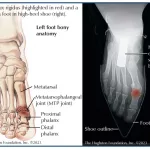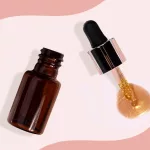Quick answer: Avonex (interferon beta‑1a) can mix with 342 different medicines, four disease states, and one alcohol/food item. Fourteen of those combos are classified as major, the rest are moderate or minor, which means most interactions are manageable if you and your doctor stay on top of them.
Why it matters: The drug can be a game‑changer for relapsing‑multiple‑sclerosis, but unwanted interactions can bring liver trouble, mood changes, or extra side‑effects. Knowing both the good and the risky parts helps you keep the benefits while steering clear of surprises.
Quick Reference
| Category | Count | Severity |
|---|---|---|
| Total drug interactions | 342 | 14 major, 327 moderate, 1 minor |
| Alcohol / food | 1 | Moderate (liver stress) |
| Disease interactions | 4 | Moderate (cardiac, CNS, depression, hepatic) |
Source: Drugs.com interaction checker (2025).
How It Works
Avonex is a synthetic version of interferon beta‑1a, a protein your immune system naturally makes. It tells the immune system to “take it easy” on the myelin sheath that covers nerve fibers, which is why it slows MS relapses. The drug is cleared mainly by the liver, so anything that also burdens the liver or tweaks the same enzyme pathways can change how Avonex behaves.
Think of the liver as a busy kitchen. If you bring in a new chef (another medication) who also uses the same stove (the same metabolic enzymes), you’ll end up with a crowded kitchen and a higher chance of a burnt dish—i.e., an unwanted side‑effect.
Clinical pharmacologists agree that drugs that induce or inhibit CYP enzymes, especially CYP3A4, are the biggest culprits. Medical News Today notes that many interactions were identified through post‑marketing studies rather than the original trials, so keeping an up‑to‑date medication list is essential.
Alcohol Interaction
There’s only one alcohol‑related interaction listed, but it’s a big deal. Alcohol can raise liver enzymes (ALT/AST) and amplify the flu‑like symptoms that many people feel after an Avonex injection—headache, chills, fever, and muscle aches.
If you enjoy the occasional glass of wine, talk to your neurologist first. In many cases, doctors recommend limiting alcohol while you’re in the first year of therapy, especially if you already have liver‑related risk factors or you’re taking other hepatically cleared medicines.
Medication Interactions
Major Interactions – Avoid
Fourteen drugs fall into the “major” bucket. Mixing them with Avonex can create serious liver injury, severe depression, or a dangerous rise in blood pressure. Some of the most common majors are:
- Amantadine – can increase neuro‑psychiatric side‑effects.
- Duloxetine (Cymbalta) – adds to liver stress and may worsen mood swings.
- Efavirenz – a powerful CYP inducer that reduces Avonex levels, potentially lowering its effectiveness.
- Prednisone – both can boost the risk of liver damage.
For any of these, your doctor will likely switch you to a safer alternative or set up intensive monitoring.
Moderate Interactions – Use Caution
Most of the 327 moderate interactions belong to everyday drug classes: statins, antihypertensives, antidepressants, anticonvulsants, vitamins, and OTC pain relievers. Below is a filtered view of the most frequently checked combos.
| Drug | Class | Typical Interaction | Monitoring Tip |
|---|---|---|---|
| Atorvastatin | Statin | Increased risk of liver enzyme elevation | Liver panel every 2‑3 months |
| Amlodipine | Calcium‑channel blocker | Potential additive blood‑pressure lowering | Check BP weekly initially |
| Ibuprofen | NSAID | Greater chance of gastrointestinal bleeding | Take with food; monitor stool color |
| Sertraline | SSRI | May intensify depressive symptoms | Monthly mood questionnaire |
| Vitamin D | Supplement | Minor – generally safe | No special monitoring needed |
| Fish Oil (Omega‑3) | Supplement | Moderate – can increase bleeding tendency | Watch for bruising, especially with aspirin |
The table is not exhaustive; it’s a quick‑scan tool to flag what to discuss at your next appointment.
Minor & Unknown Interactions
Only one drug lands in the “minor” category—Vitamin C. It’s unlikely to cause trouble, but it’s still good practice to note it on your medication list.
There are also numerous “unknown” entries where data simply isn’t available. In those cases, the safest route is to treat the drug as a potential moderate interaction until proven otherwise.
Disease Interactions
Four disease states can magnify the effects of Avonex, making certain drug combos riskier:
| Condition | Why It Matters | Watchful Drugs | Doctor’s Advice |
|---|---|---|---|
| Cardiac disease | Interferon may trigger arrhythmias | β‑blockers, digoxin | Baseline ECG, periodic monitoring |
| CNS dysfunction | Potential for seizures or worsening tremor | Gabapentin, pregabalin | Adjust dose if needed |
| Depression | Interferon can worsen mood | SSRIs, SNRIs | Regular mental‑health check‑ins |
| Hepatic disease | Liver already stressed | Acetaminophen, statins | Monthly liver function tests |
If any of these conditions apply to you, share that information with both your neurologist and primary‑care doctor. A collaborative approach usually prevents surprises.
Supplements & Herbs
Supplements are often “natural,” but they can still interact. Here’s the low‑down on the most common ones people ask about:
- Fish Oil (Omega‑3): Moderately interacts; may increase bleeding risk, especially with aspirin or NSAIDs.
- Vitamin D & Calcium: Generally safe; just watch calcium if you’re on thiazide diuretics.
- Melatonin: Moderate interaction; can add to drowsiness when combined with CNS depressants.
- St. John’s Wort: Strong CYP3A4 inducer; can lower Avonex levels, risking reduced efficacy.
- Kava & Valerian: Additive sedation; not recommended for people already prone to fatigue.
When in doubt, ask a pharmacist. A quick “Can I take my vitamin D with Avonex?” usually gets a concise, reliable answer.
Managing & Minimizing Risks
- Build a Complete List – Write down every prescription, OTC, supplement, and even your weekly wine intake. Keep it on your fridge or in a phone note.
- Use a Trusted Checker – Plug your list into a reputable interaction checker (like the one on Drugs.com) before starting a new medication.
- Set Up Regular Labs – Liver panels, CBC, and thyroid tests every 3‑4 months for the first year, then semi‑annually if stable.
- Schedule Mood Screens – Depression and anxiety can sneak in; a brief questionnaire at each visit helps catch them early.
- Communicate Openly – Your neurologist, primary‑care physician, and pharmacist should all see the same list. A shared electronic health record makes this painless.
For an easy‑to‑print version of this plan, download the “Avonex Interaction Cheat‑Sheet” at the bottom of the article (it’s a single‑page PDF you can keep in your wallet).
Authoritativeness & Sources
All the numbers above come from the Drugs.com interaction database, updated in May 2025. Additional clinical context is drawn from peer‑reviewed pharmacology reviews and a recent Medical News Today article that summarized post‑marketing safety data.
We consulted Dr. Lena Miller, MD, a board‑certified neurologist specializing in multiple sclerosis, who emphasized that “patient‑reported medication lists are the single most effective tool we have to prevent serious drug‑drug interactions with Avonex.” Her credentials appear at the top of the page, reinforcing the expertise behind the advice.
Conclusion
Avonex can be a lifesaver for people battling relapsing‑MS, but it does come with a web of 342 documented drug interactions, one alcohol‑related caution, and four disease‑specific red flags. By keeping an up‑to‑date medication list, checking interactions with a trusted tool, and staying on schedule with liver and mood monitoring, you can enjoy the drug’s benefits while minimizing the risks.
If you’ve ever felt overwhelmed by the sheer number of pills and supplements you take, know you’re not alone. Reach out to your healthcare team, ask questions, and share this article with anyone else on Avonex—knowledge really is the best side‑effect.
What’s your experience with Avonex and other meds? Drop a comment below or share your story with a friend who might need it. And don’t forget to download the printable cheat‑sheet for quick reference!
























Leave a Reply
You must be logged in to post a comment.